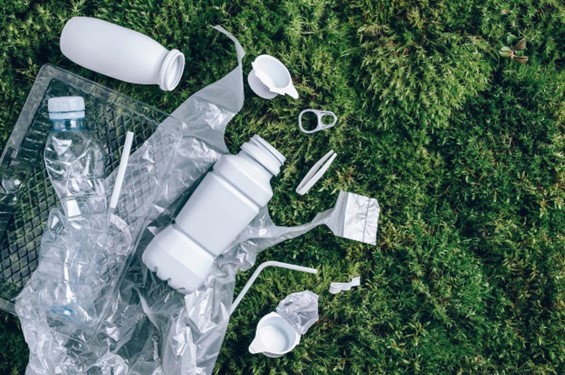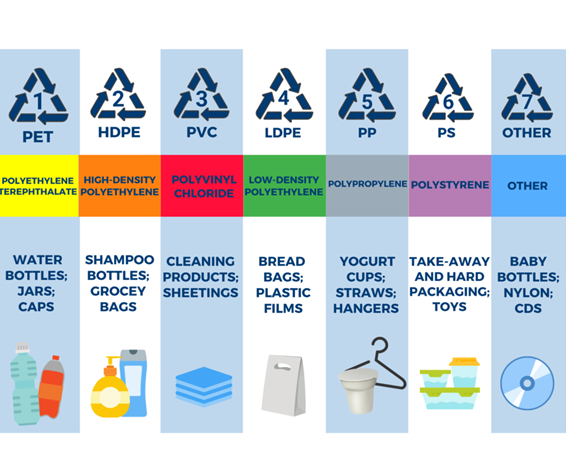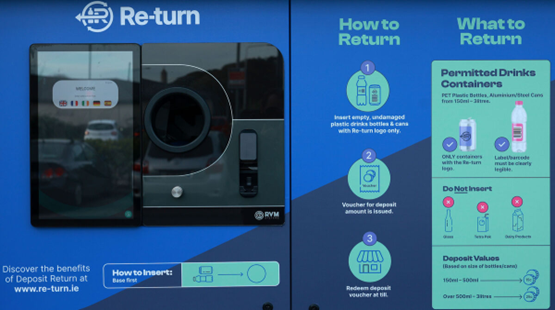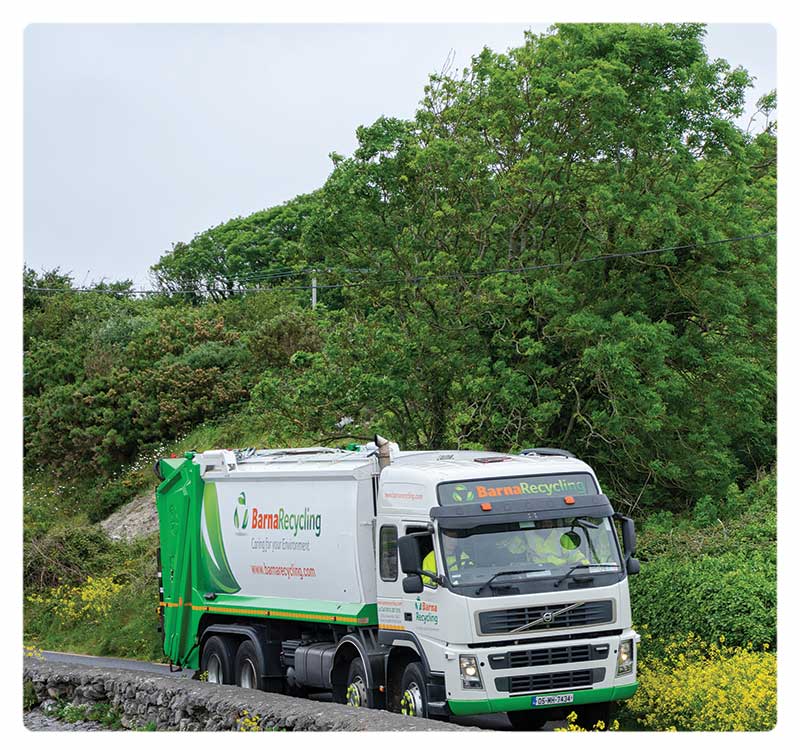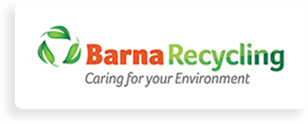- Barna Recycling
- Sep 11, 2024
Steps to Follow when Disposing of Plastic Packaging Waste
Irish Waste Data shows that out of the 372,819 tonnes of plastic packaging generated, only 26,048 was recycled in 2021. Ireland is already achieving the 2025 target for glass, wood and ferrous metal, however, the 2025 target for plastic, aluminium and the overall packaging target are far from reach according to the most recent EPA waste data published 24 August, 2023 (reference graph below).
At Barna Recycling, we have invested in technological advancements that allow us to sort, recover and dispose of different plastic materials, but the efforts of each household are vital for correctly and efficiently managing the recycling of plastic packaging waste in the country. In this blog, we discuss Barna’s plastic packaging recycling process, as well as answering the many ambiguous and frequent questions about how we properly dispose of plastic in Ireland.
Can You Recycle Soft Plastic in Ireland?
Yes, you can! Soft plastic is any type of plastic that you can scrunch in your hand. Good examples of soft plastic are shrink wrap, plastic carrier bags, toilet roll wrappers, plastic bread bags, zip lock bags, and bubble wrap.
A good indicator to identify whether plastic is soft and recyclable is to pull on the plastic to see if it stretches. This means the plastic is not laminated and can be recycled. If the plastic doesn’t stretch this means it’s laminated or coated, indicating it is much more unlikely to be recyclable. These types of plastic are removed during our sorting process and sent for waste to energy recovery. Examples of non-soft plastics are foil-based packaging, netting, polystyrene or foam.
Remember to place your recycling materials loose, clean, and dry into your bin. Please do not place your recycling items in a plastic bag. You can always check What Goes in My Blue Bin if you are unsure of which empty household items can be recycled.
Interesting Facts about Plastic
- Until 2020, Irish recycling facilities could only process rigid plastics
- Plastic makes up 90% of the rubbish in our oceans
- Plastic production uses 8% of the world’s oil production
- Every ton of plastic recycled saves 30 barrels of crude oil
- A plastic bag takes 500 years to break down in a landfill
- Recycling 1 plastic bottle saves the same amount of energy needed to power a 60-Watt light bulb for 6 hours
Did you know that many items can be made from recycled plastic bottles? From fleece to sleeping bags, backpacks, and dog beds, there are many useful items that can be made from plastic bottles. For example, 25 large plastic soft drink bottles will make 1 Fleece Jacket.
How do we dispose of plastic and is all plastic packaging waste recyclable?
Smart Waste management company, Sensoneo, have created a very helpful diagram guide for plastic waste management to help with the sorting and correct disposal of the many plastic materials circulating our environment. In the diagram, the categorization of plastics helps us to understand the types of plastics that can be recycled, guiding us to a more sustainable future.
Not all plastic is created equal, and it’s important to know what types can be recycled. Look for the recycling symbol, usually found on the bottom of the product, and identify the number inside the symbol. This number corresponds to the type of plastic and will indicate whether or not you can recycle it. One of the main problems of sustainable waste management nowadays is that currently there are seven different common types of plastics in the consumer market:
- Polyethylene Terephthalate (PET or PETE)
- High-Density Polyethylene (HDPE)
- Polyvinyl Chloride (PVC or Vinyl)
- Low-Density Polyethylene (LDPE)
- Polypropylene (PP)
- Polystyrene (PS or Styrofoam)
- Other
OECD estimates suggest that the number of plastic products and waste will triple by 2060, while the recycling rate will only see a slight increase. On average, the official recycling rate of plastic packaging is reported to be around 10% across the globe, although this exact figure varies from country to country. EPA (2023) records concluded that plastics present a serious challenge in Ireland with only 28 percent of plastic packaging waste having been recycled in 2021 – a figure that was a long way off the 2025 EU target of 50 percent under the Circular Economy and EU Legislation. The majority of Ireland’s plastic packaging waste is still being incinerated.
What is Ireland doing to improve waste management plastic recycling and proper disposal?
Ireland’s introduction of the DRS (Deposit Refund System) in 2024 has encouraged a huge effort by the Irish nation to recycle plastic bottles. The Irish DRS scheme is closing the gap between the current average recycling rate of plastic waste in the country and the 2025 EU target of 50%. Return.ie (2024) has published record-breaking figures, counting 300 million plastic bottles and cans returned by Irish consumers between February – July this year.
Ireland’s Deposit Return Scheme
The great progress made since the DRS launch in Ireland can be demonstrated by the growing figure of drinks containers returned each month:
- 2m containers February
- 20m containers in March
- 51m containers in April
- 78m containers in May
- 90 m containers in June
- 54 m containers in July to date
If you are living in a country with a functioning DRS and you do not have a chance to deposit the bottle in an RVM (Return Vending Machine), it is still better not to crush it. By leaving it beside the bin or on a picnic bench in a busy park or city for example, there is a high probability that your bottle will help some other people who will redeem it for credit by recycling it in the correct manner.
How Does Barna’s Waste Management Plastic Recycling Process Work?
Our recycling process starts with you. Once your plastic waste is placed in the household recycling bin, our collection crew then collect your recycling bins on the designated day and deliver the waste materials to our EPA licensed recycling facility. After your waste materials are delivered to our facility, we apply the following process:
- Sorting: Recycled items are sorted for processing on our picking line.
- Selection: The recycled waste is separated into six different categories such as paper, cardboard or hard plastics, glass, aluminium & steel cans.
- Segregation: Our technology also allows us to segregate soft plastics in this same way with the use of advanced optical sorting equipment.
- Shipped & Sold: The recyclable plastic & cardboard waste is baled & shipped abroad to be sold and recycled in European (and other) markets, or used by manufacturers and energy plants.
It’s about time YOU took action to reduce plastic waste in OUR planet!
The world is waking up to climate change, pollution, and resource depletion challenges. Minimise waste, repurpose items and recycle whenever possible. Small changes can yield significant results.
Not a Barna Recycling customer yet? Join today and partner with your number one environmentally friendly waste collection provider.



